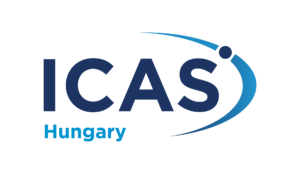Our hidden troubles
where can an employee turn for help, when faced with problems?

After 2020 the new 2021 year has confronted us with new additional turnarounds. The pandemia, the economic uncertainties, obligatory home office and the encumbered workplace social support has affected most of our partners. These problems added on top of those ones, which employees have wrestled before and during the pandemia. These have made it even more difficult to deal with those without any professional support relying exclusively on their own resources and support of their own private social network.
Accumulation of problems
In case an employee struggles with private or work related stress, it will necessarily impact more or less the concerned persons’ work performance.[1] The unsolved, long time existing troubles lead to constant status of stress, sleeping problems. Later on to such mental disorders, like anxiety, depression, and this way raising serious risks on mental health. But, where can an employee turn to ask for immediate help?
When it is better not to talk about
In a well operating organization with a secure social environment employees may share their troubles easier. Knowing, that in response they can count on understanding, empathy – and if they are given the chance – reduced workload. In other case it is more frequent, that neither in the organization nor in the given position such opportunities do not exist. In the expectation of any potential reorganization troubles seem to be better to be hidden due to the fear of possible disadvantages during the lay-off. Even from a more empathetic manager it cannot be expected to provide a permanent supporting presence under all circumstances. Especially when himself/herself may suffer from own difficulties (either private or work related). Because of all these reasons it occurs frequently, that the manager perceives the drop of performance, but does not know about the driving factors in the background, this way – even with the best intent – tries to tackle the issue with a training or a performance improvement program.
The reason of hiding
The question in which proportion do employees turn to the representatives of their employers with their mental problems was investigated by an international research in the US, Canada, Australia and the United Kingdom involving 3894 employees.[1] According to the study 82% of the employees struggling with mental problems hide their status in front of their employer. The most frequent reasons for this are their fear from any retorsion, that can negatively impact their careers (38%); that their professional competence will be questioned (22%); the shame about their state (21%); that their ability for work will be doubted (10%). Maybe the most worrisome result of the research is that each tenth employee considers, if he/she would impart a confidence in sharing own struggle with mental problems, it can lead to the loss of their job.
How problem holders can get effective support
The study reveals the further conclusion, that almost half of the employees (43%) think that more health related workplace education programs as well as access to a proper supporting service were needed. Also almost half of the respondents (45%) consider, that in case of need they would use such a service with a better chance, if at their workplace open conversations were launched in relation to these topics. The Employee Assistance Service of ICAS Hungary is dedicated to provide a trusted channel to let employees to share their problems, in case of workplace difficulties to get support for their effective communication towards their employers, with proper framing as well as channel, tone and timing. Our service helps to build or even re-build the trust between employees and employers. Our helpline is available in 24 hours each day of the week, the telephone is taken in each case by highly qualified and experienced psychologist colleagues, who are also available for a multi-occasion consultancy process and in case of emergency or risk they can direct employees to the proper organisations. If as an employer You intend to provide such an opportunity to the employees of Your company, step in contact with us, and we are pleased to provide further information about our service elements and our related experience.
[1] https://www.who.int/occupational_health/publications/pwh3rev.pdf
[2] https://www.ipsos.com/en/mental-health-workplace-global-impact-study






